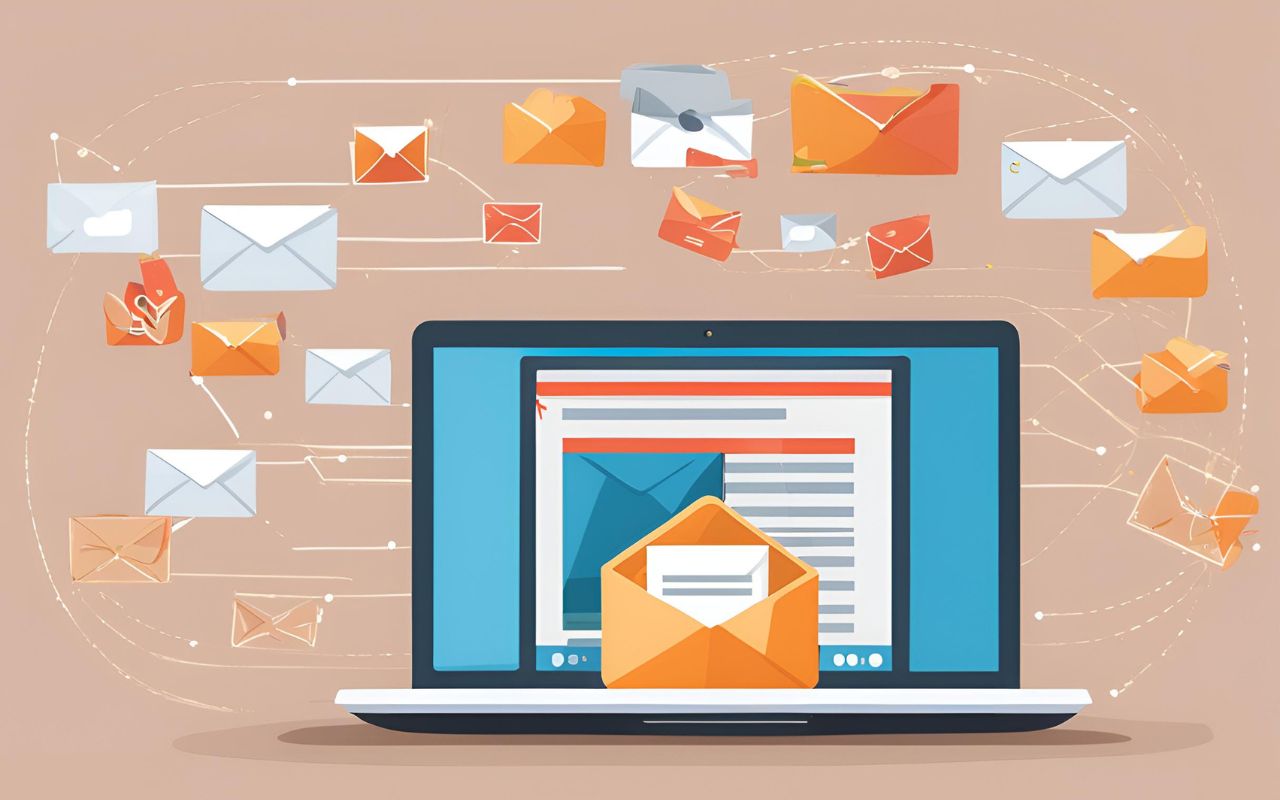
Email marketing has long been a cornerstone of digital strategy, providing businesses with a direct line of communication to their customers. However, when combined with Customer Relationship Management (CRM) tools, email marketing becomes an even more powerful asset. Integrating email marketing and CRM allows businesses to personalize outreach, nurture leads, and build lasting customer relationships.
By leveraging the synergy between these two tools, companies can achieve higher engagement rates, improve customer satisfaction, and ultimately drive growth. This article explores 9 proven strategies to effectively combine email marketing with CRM for maximum impact.
What is Email Marketing and Customer Relationship Management (CRM)?
Email marketing is a digital marketing strategy that involves sending emails to a targeted audience to promote products, share content, or build customer loyalty. It is one of the most cost-effective ways to reach a large audience and is highly adaptable to various marketing goals.
Customer Relationship Management (CRM), on the other hand, is a technology that manages all of a company’s interactions with current and potential customers. CRM systems help businesses organize customer data, streamline processes, and improve relationships.
When email marketing is integrated with CRM, businesses can use customer data to create personalized and relevant email campaigns. This integration enables marketers to deliver the right message to the right customer at the right time.
Why Integrate Email Marketing with CRM?
Integrating email marketing with CRM provides several compelling benefits that can help businesses grow:
- Enhanced Personalization: By combining customer data from a CRM system with email marketing tools, businesses can create highly personalized messages that are tailored to individual preferences, behaviors, and past interactions.
- Improved Customer Insights: A CRM system provides a wealth of information about customers, such as purchase history, browsing behavior, and demographics. This data helps marketers craft more effective email campaigns that resonate with their audience.
- Increased Efficiency and Automation: Integration allows businesses to automate email campaigns based on specific triggers or customer actions. This not only saves time but also ensures timely and relevant communication with customers.
- Stronger Customer Relationships: By using data-driven insights, businesses can create meaningful interactions with customers, fostering trust and loyalty over time.

9 Strategies for Leveraging Email Marketing and Customer Relationship Management (CRM)
1. Segment Your Audience for Targeted Campaigns
Segmentation is one of the most effective ways to use email marketing in conjunction with CRM. Divide your audience into different segments based on their demographics, buying behavior, interests, or stage in the customer journey.
For instance, a CRM system like Salesforce allows you to create dynamic segments that automatically update based on real-time customer behavior. This enables you to send targeted emails to specific groups, increasing the relevance and effectiveness of your campaigns.
2. Utilize Behavioral Data for Personalization
Using behavioral data from your CRM can significantly enhance your email marketing efforts. Track customer actions, such as past purchases, website visits, or product views, and use this information to tailor your email content.
For example, if a customer frequently browses your electronics section, you could send them an email featuring your latest tech gadgets. Platforms like HubSpot make it easy to automate such personalized campaigns based on behavior.
3. Automate Customer Journeys with Email Workflows
Automation is a key benefit of integrating email marketing with CRM. Set up automated workflows that trigger emails based on specific customer actions, such as signing up for a newsletter, making a purchase, or abandoning a cart.
Using tools like Mailchimp, you can create sophisticated workflows that guide customers through various stages of their journey, from awareness to conversion, without manual intervention. This ensures consistent communication while freeing up your team to focus on strategy.
4. Leverage Customer Feedback for Continuous Improvement
Customer feedback is invaluable for refining your email marketing strategy. Use your CRM system to collect and analyze feedback from email surveys, reviews, or direct interactions.
Integrating this feedback into your email campaigns can help you address customer pain points, highlight positive experiences, and ultimately improve customer satisfaction. Tools like SurveyMonkey can be used to create effective email surveys that feed directly into your CRM.
5. Nurture Leads with Targeted Content
Lead nurturing is essential for turning prospects into customers. Use your CRM data to identify where each lead is in the sales funnel and send them relevant content to move them closer to conversion.
For example, a lead who has shown interest in a specific product category could receive a series of emails featuring related blog posts, case studies, or product comparisons. A tool like Marketo can help automate this process and track engagement at each stage.
6. Analyze Campaign Performance for Better Results
To maximize the impact of your email marketing efforts, regularly analyze campaign performance. Use your CRM’s analytics tools to track key metrics such as open rates, click-through rates, and conversion rates.
By understanding which campaigns are most effective, you can refine your strategy, improve content, and better target your audience. Tools like Zoho CRM offer robust reporting features that help you make data-driven decisions.
7. Send Re-engagement Emails to Inactive Subscribers
Every email list has inactive subscribers who haven’t engaged with your content for a while. Use your CRM to identify these subscribers and send targeted re-engagement emails that encourage them to come back.
For example, you could offer a special discount or highlight new content that might interest them. Re-engagement campaigns can help reduce churn and improve overall email performance.
8. Enhance Customer Loyalty with Exclusive Offers
Building customer loyalty is key to long-term success. Use your CRM data to identify loyal customers and send them exclusive offers or discounts via email.
This not only rewards their loyalty but also encourages repeat purchases and drives more traffic to your website. Platforms like Klaviyo can help create and manage loyalty-based email campaigns.
9. Integrate Social Proof to Build Trust
Including social proof in your emails can help build trust and credibility. Use your CRM to gather customer reviews, testimonials, or case studies and feature them in your email campaigns.
For example, an email showcasing a positive review of a popular product, along with a link to the product page, can drive traffic and increase conversions. Tools like Trustpilot can help collect and display customer feedback effectively.
The Role of Data Security in Email Marketing and CRM
Data security is paramount when integrating email marketing with CRM. Ensure that all customer data is stored securely and that your email marketing practices comply with regulations like GDPR and CCPA. Use encryption and secure login protocols to protect sensitive information, and regularly review your data management policies to safeguard customer trust.
Conclusion
Email marketing and customer relationship management (CRM) are two powerful tools that, when combined, can significantly enhance customer engagement and drive business growth. By using strategies such as segmentation, personalization, automation, and performance analysis, businesses can create targeted and effective email campaigns that resonate with their audience. With the right tools and practices, you can build lasting customer relationships and boost your ROI.
Frequently Asked Questions
Q1: What is the best way to integrate email marketing with CRM?
A1: Use a CRM platform like Salesforce or HubSpot that offers robust integration features with email marketing tools, allowing for seamless data flow and automation.
Q2: How can CRM data enhance email marketing campaigns?
A2: CRM data provides insights into customer behavior, preferences, and demographics, enabling personalized and targeted email campaigns that drive higher engagement.
Q3: How often should I analyze the performance of my email marketing campaigns?
A3: Regular analysis is key. Monitor performance metrics such as open rates and click-through rates weekly or monthly to continuously optimize your campaigns.
Learn more:






